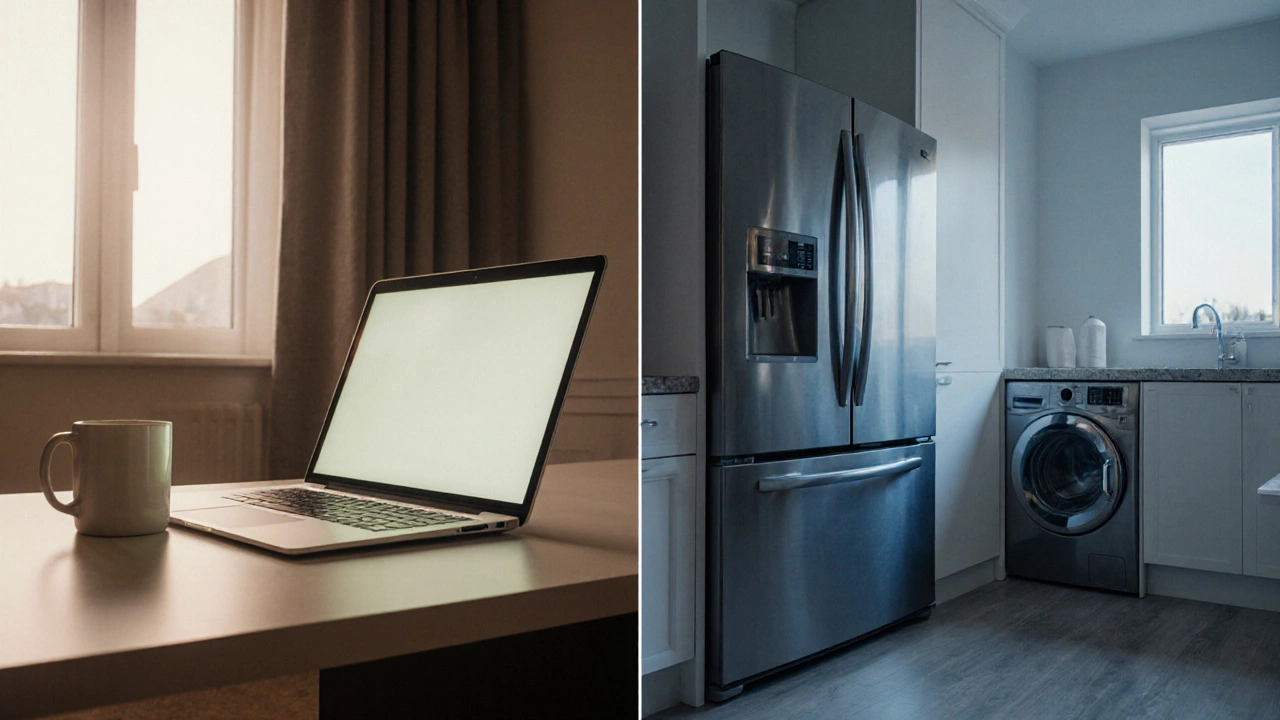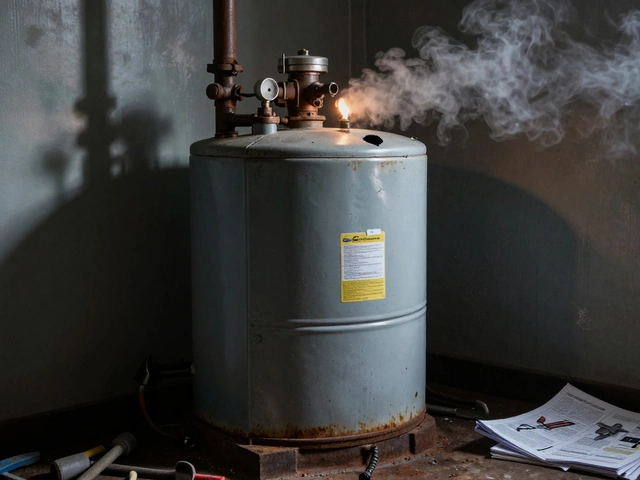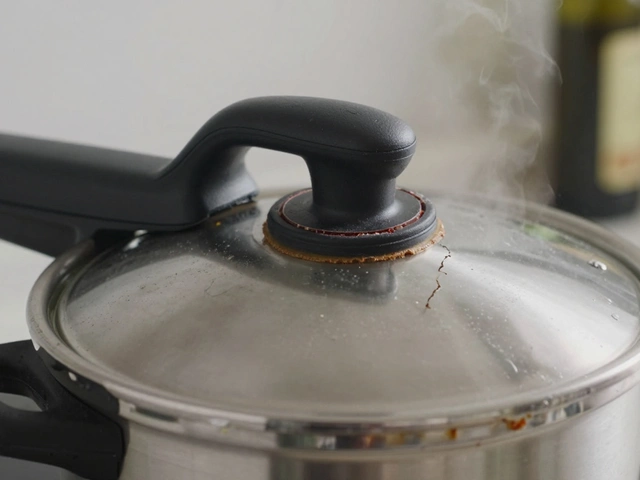Laptop vs Appliance Power Calculator
Power Consumption Comparison
Determine if your device is likely a laptop or home appliance based on power draw (watts).
Quick Takeaways
- A laptop is classified as an electronic device, not a home appliance.
- Appliances are generally fixed, plugged‑in items designed for household tasks.
- Power consumption, mobility, and safety standards are the main points of separation.
- Knowing the classification helps with insurance, warranty claims, and repair options.
- Both laptops and appliances follow electrical safety rules, but they’re regulated by different agencies.
When you hear the word "appliance," you probably picture a fridge or a washing machine. Still, people often wonder if a laptop falls under the same umbrella. The answer isn’t just about semantics-it's about how regulators, insurers, and repair shops treat the product. Below we break down what makes a laptop distinct from a typical home appliance, why the distinction matters, and what you should keep in mind if you’re buying, insuring, or fixing a laptop.
What Exactly Is a laptop?
Laptop is a portable personal computer that integrates a screen, keyboard, battery, and internal components into a single, mobile case. It runs operating systems like Windows, macOS, or Linux and is designed for tasks ranging from web browsing to heavy‑duty graphic rendering. Laptops typically draw power from a built‑in battery, but they can also run directly from an electrical outlet via a charger.
How Do Experts Define an Appliance?
Appliance refers to a device primarily used in a household to perform a specific function such as cooking, cleaning, or climate control. Most appliances are stationary, require a fixed power source, and are covered by standards set by agencies like the International Electrotechnical Commission (IEC) or national safety regulators. Common examples include refrigerators, ovens, and washing machines.
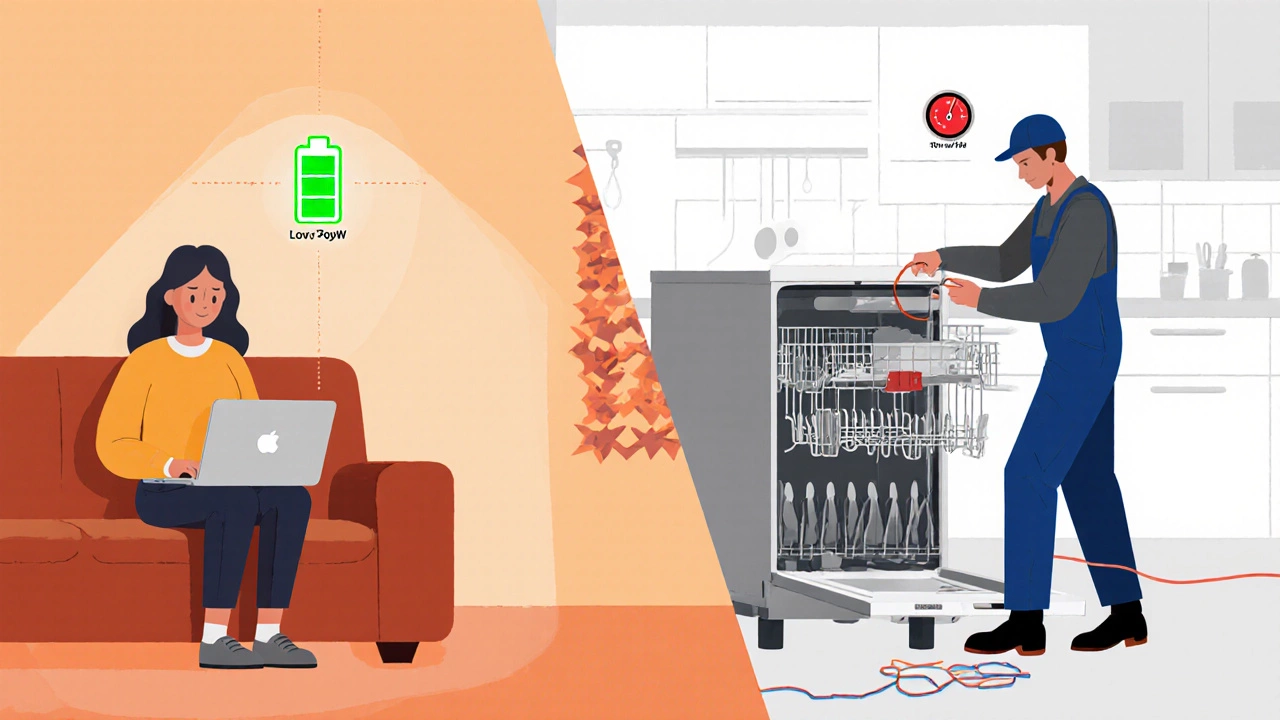
Key Attributes That Separate Laptops from Home Appliances
Below is a side‑by‑side look at the most telling differences.
| Attribute | Laptop | Home Appliance |
|---|---|---|
| Primary Function | Computing, communication, media consumption | Cooking, cleaning, temperature control |
| Mobility | Highly portable, battery‑powered | Stationary, fixed installation |
| Power Rating | Usually 45‑90W (average) | Often 500‑3000W depending on type |
| Regulatory Body (US example) | Federal Communications Commission (FCC) for emissions | U.S. Consumer Product Safety Commission (CPSC) |
| Typical Warranty | 1‑3years, often extendable | 1‑5years, sometimes longer for major units |
| Repair Landscape | Electronics repair shops, manufacturer service centers | Appliance repair specialists, HVAC contractors |
Legal and Safety Perspectives
Electronic device is any equipment that manipulates electrical signals to process data, display information, or perform calculations. In most jurisdictions, laptops fall under the category of electronic devices and are subject to certifications like CE (Europe) or FCC (USA) that focus on electromagnetic interference.
In contrast, home appliance must meet standards for electrical safety, heat resistance, and sometimes energy efficiency (e.g., ENERGY STAR). Because of their higher power draw and fixed installation, appliances undergo more rigorous testing for things like grounding and insulation.
This split matters when you’re filing an insurance claim. Policies often list “home appliances” as a separate coverage line, while laptops are treated under “personal electronics” or “computers.” Mixing the two could lead to denied claims or reduced payouts.
Service, Repair, and Maintenance Differences
If your laptop refuses to boot, you’ll likely reach out to an electronics repair shop or the manufacturer’s support team. These providers specialize in screen replacements, motherboard diagnostics, and battery swaps. The repair process is usually quick-often within a day or two for common issues.
Appliance repair, however, tends to involve licensed technicians who can work on high‑voltage components, gas lines, or water connections. A broken washing machine might sit for several days while a specialist orders a specific motor. Moreover, many appliance repair services charge a call‑out fee before even diagnosing the problem.
Understanding which repair ecosystem applies to your device can save you time and money. For example, trying to book a “home appliance” technician for a laptop screen crack will likely result in a higher bill or a refusal.
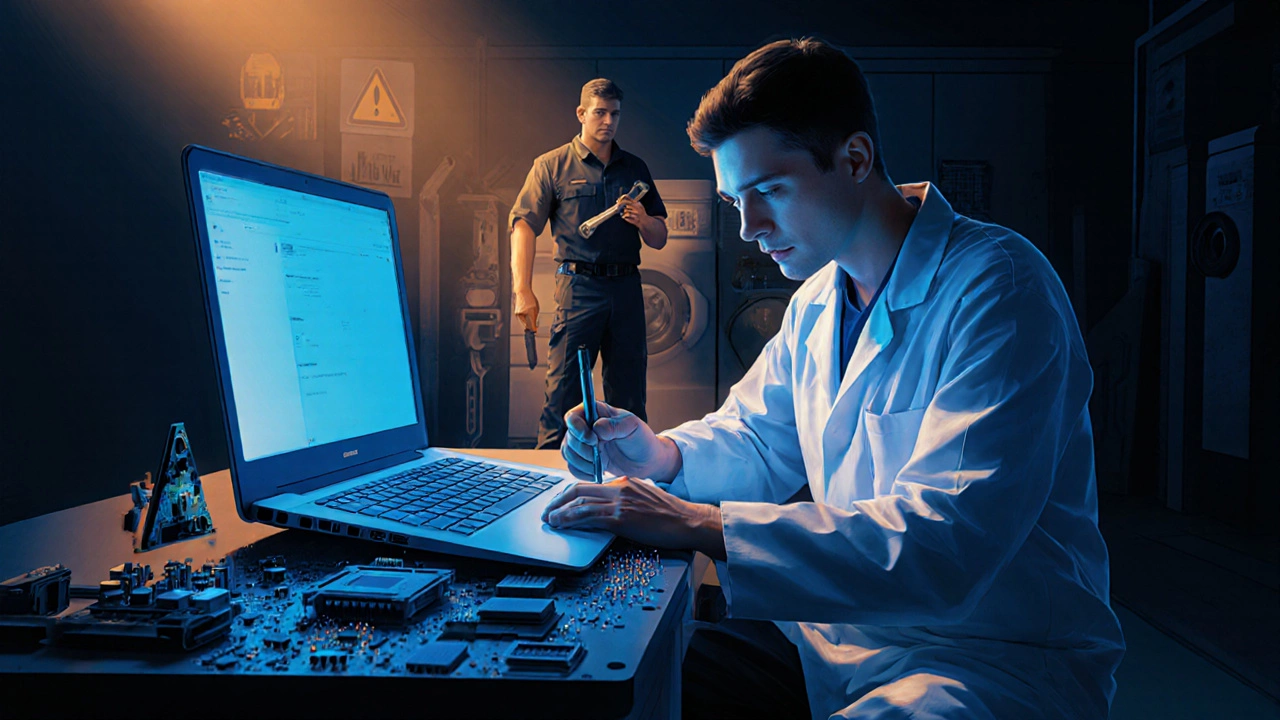
When Might a Laptop Be Treated Like an Appliance?
There are a few edge cases where a laptop blurs the line:
- Built‑in Home‑Automation Units: Some modern laptops double as control panels for smart‑home hubs. In such setups, insurers may list the unit under “home electronics” rather than “appliance.”
- Commercial Use in Kitchens: Restaurants sometimes use rugged laptops to manage orders at the prep station. Because the device is permanently installed near food prep equipment, health‑safety regulators may treat it similarly to a kitchen appliance.
- Energy‑Consumption Tax: Certain regions tax high‑energy devices. Since laptops draw far less power than a dishwasher, they’re usually exempt, reinforcing their non‑appliance status.
Even in these scenarios, the classification hinges on function and installation, not merely the fact that the device runs on electricity.
Bottom Line: Classification Matters
In everyday language, you might lump a laptop together with a toaster, but technically it’s an electronic device. Recognizing this distinction helps you navigate warranty terms, insurance policies, and repair options more effectively. Whether you’re a homeowner, a small‑business owner, or just a tech‑savvy consumer, knowing where your laptop fits in the product ecosystem lets you make smarter decisions about protection and upkeep.
Frequently Asked Questions
Is a laptop covered under home appliance insurance?
Most standard home‑appliance policies exclude laptops because they fall under the “personal electronics” category. You’ll need a separate computer or personal property endorsement to get coverage for a laptop.
Do laptops have to meet the same safety standards as appliances?
Laptops comply with electronic‑device standards like FCC or CE, which focus on electromagnetic emissions and basic electrical safety. Home appliances must also meet stricter heat‑resistance and energy‑efficiency standards, so the testing regimes differ.
Can I get an appliance‑repair technician to fix my laptop?
It’s technically possible, but most appliance technicians aren’t equipped for laptop diagnostics. They might charge higher rates or refer you to an electronics specialist.
Do laptops consume less power than typical appliances?
Yes. An average laptop draws between 45‑90watts, whereas a dishwasher or dryer can pull 1500‑3000watts during operation.
If I use a laptop as a kitchen control panel, does that make it an appliance?
Not automatically. The primary classification stays with the device’s original design-an electronic computer. However, insurance carriers may treat the whole system as a bundled “home‑electronics” package.
